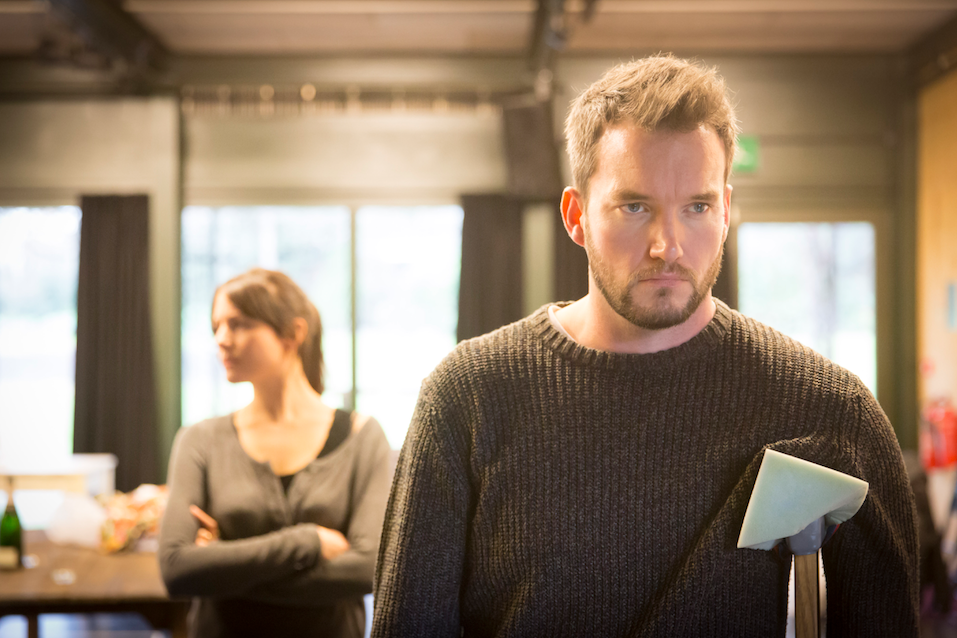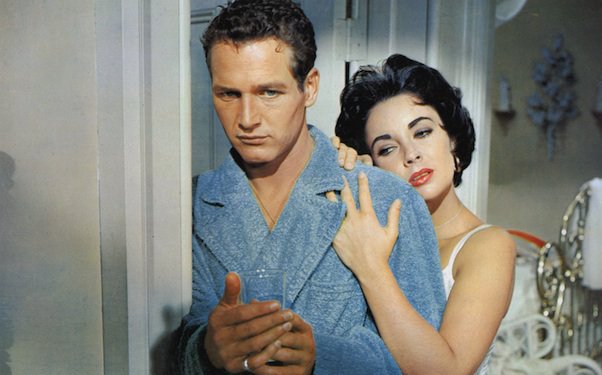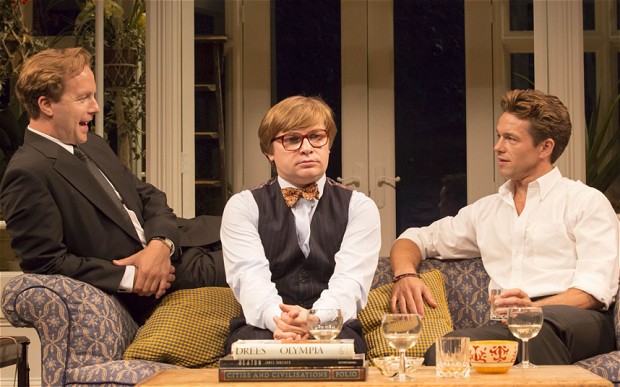Interview | Director Rob Hastie on the gay struggles of ‘Cat On A Hot Tin Roof’
By Ben Kelly

Rob Hastie is an Associate Director at the Donmar Theatre in London, where the first staged a revival of Kevin Elyot’s classic play My Night With Reg last year, before a sell out West End run. Now, he’s tackling a more delicate gay character than the aforementioned Reg: the closeted and troubled Brick in Tennessee Williams’ classic Cat On A Hot Tin Roof, who is literally crippled by the memory of his late love Skipper.
Ahead of the show’s debut next month, Attitude’s Ben Kelly caught up with Rob to chat about the treatment of homosexuality in Williams’ plays, and the expectations that come with tackling classic theatre.

What drew you to Cat On A Hot Tin Roof, and to Tennessee Williams in general?
I love Tennessee Williams. He manages to capture what it is to be human. I think he’s a brilliant writer about family, about sex, about lies; he’s a great writer about sexuality. I did the British premiere of a short play of his a couple of years ago; there are hundreds of his short plays and they’re much more explicit in terms of his sexuality than his more famous, full length plays. There are more explicit gay relationships in his short plays. He didn’t know if they were ever going to be produced – they were just little sketches or doodles – so you sort of get this insight into his private psychology. I see it almost like a little release valve – he puts more explicit gay stuff in there.
It’s there in the big plays, but it’s masked isn’t it?
Yeah, the gayness is always just off stage, or just in the recent past – like Blanche’s husband in A Streetcar Named Desire, and you get the feeling in The Glass Menagerie that Tom perhaps has similarities with the writer – but here it’s all about Brick and Skipper. Going back to the play again, I’m always surprised by just how explicit it is, given that it’s a play from the mid-1950s. He doesn’t shy away from the fact that one of the character’s sexuality is in question. In fact, the thing that moved me most is that the character you’d expect to most embody the attitudes of the time, the one you’d most expect to be bigoted, Big Daddy, is actually the one who surprises us all by demonstrating tolerance. He actually reaches out a hand. It is Brick’s own self-disgust that means he can’t be honest with himself about his sexuality.

To what extent is it your choice to draw those underlying gay elements out, as a director? I’m thinking of plays like The Merchant of Venice where you can bring it out, or not…
Well I think it’s all there in the text. Something like The Merchant of Venice, I think it’s almost impossible for us now to watch it and not hear the sexuality of those characters expressed. Sexuality was experienced very differently in Shakespeare’s time. The gap between us and the 1950s is not that long, and again the surprise of the play is how immediate it is, how recognisable it is. At a period of time where you’d expect homosexuality to be invisible – deliberately hidden, or just not understood – it’s surprisingly visible in this play.
Hovering in the background are the ghosts of the two men who owned the plantation, and used to sleep together in the room where the play takes place. They took Big Daddy in when he was a boy, as a sort of surrogate son, turned him from a farm hand into the inheritor of the estate. And you hear about how they slept in the same bed, and when one of them died, the other stopped eating until he also died. They’re named in the play, and it all takes place in the room where they slept… and it’s almost like if Brokeback Mountain had had a happy ending, that’s what might have happened. As far as we can tell in the play, they not only had a very happy, very full relationship, but it was also a very acknowledged relationship.

The gay element is kind of downplayed in the 1958 film version isn’t it?
Williams was never satisfied with the film. With the stunning beauty of Paul Newman and Elizabeth Taylor, it’s surprisingly sexless. You have to look really, really hard at the film to see what it is that’s preventing these two beautiful people from having sex. Coming back to the play, it’s easier to see. It’s not the play that’s afraid to look at sexuality, it’s Brick himself.
Last year you directed the successful revival of Kevin Elyot’s 1995 play My Night With Reg. What kind of pressure did you feel in bringing such a well loved story back to the stage?
I had no doubts that it was a play that would speak to people, I had thought for 20 years that it was a brilliant play. Here was a play which a lot of people might have thought would have been dated, but it turned out to work still, and that was the nicest bit for me. It deserves a place as a modern classic and the most rewarding thing for me would be to know that it will get performed again and again. It’s what Kevin deserves to have acknowledged, and the fact that he died so soon before the start of rehearsals meant that there was pressure on the production, and I’m delighted for him that it seemed to touch a chord with people as much in 2015 as it did in the 90s.

It’s a wonderful play for bringing comedy and tragedy so close to one another. Was is a challenge to strike that balance?
Not really, because when the writing is that good, you can really trust it, and Kevin shares that with Williams actually, because people forget Williams is a very funny writer, a very dark humour, and he understands like Kevin Elyot understands that the experience of life is comic and tragic, not just in equal measures, but in very close proximity. With Kevin, he could be hilarious and heartbreaking, sometimes in the same line, and I think that’s equally true of Tennessee Williams.
Cat On A Hot Tin Roof plays at the Theatre Clwyd in Wales from February 4-29. For more information and tickets visit theatrclwyd.com.
More stories:
Boy George reduces Paloma Faith to tears during fiery exchange on ‘The Voice’
Justin Bieber flaunts it for new Calvin Klein campaign
